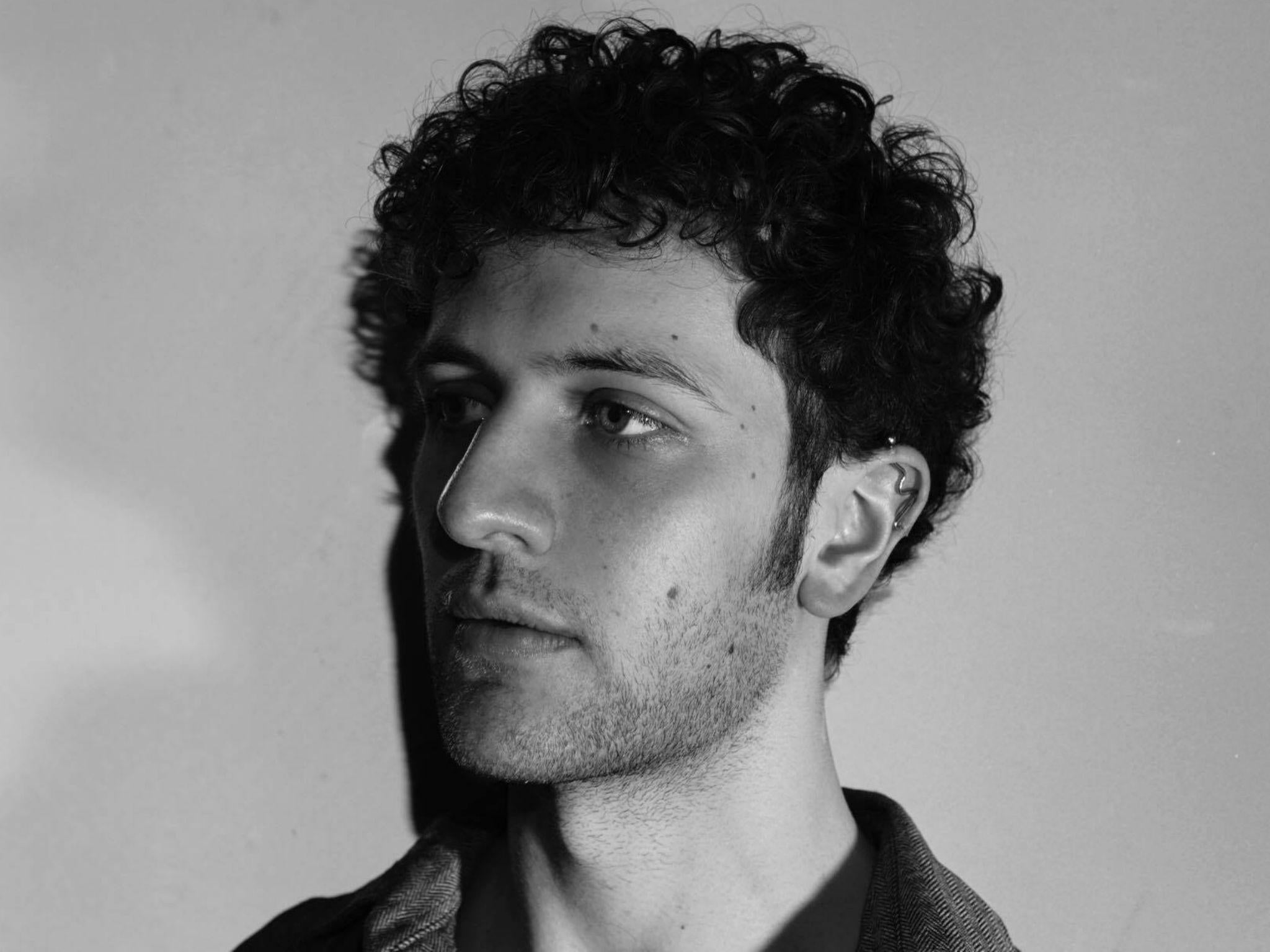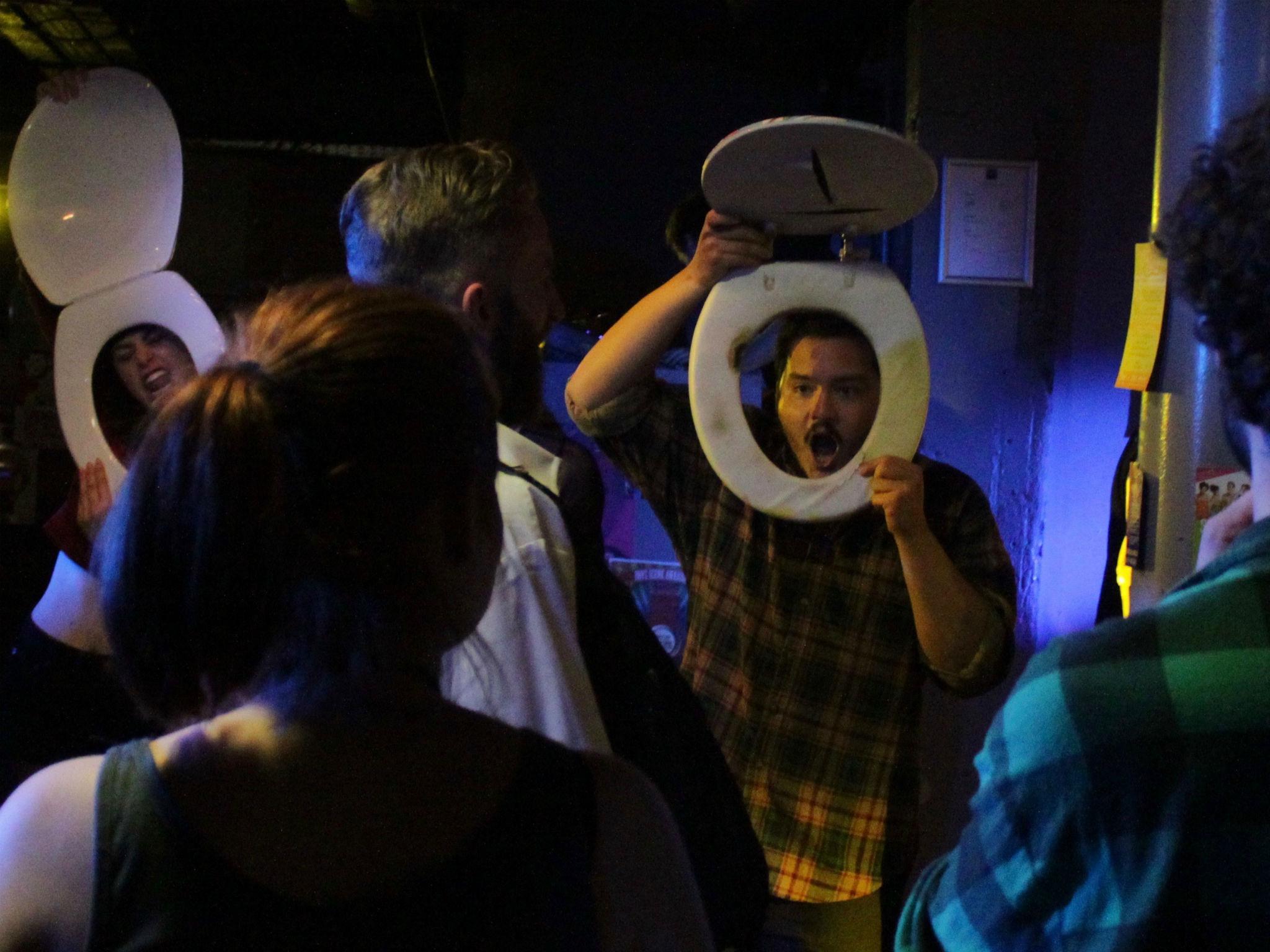Boys of Paradise: An immersive opera about the highs and lows of gay clubbing
Vahan Salorian explains why he has composed a contemporary opera that reflects the dangers of gay clubbing in a non-preachy way

Your support helps us to tell the story
From reproductive rights to climate change to Big Tech, The Independent is on the ground when the story is developing. Whether it's investigating the financials of Elon Musk's pro-Trump PAC or producing our latest documentary, 'The A Word', which shines a light on the American women fighting for reproductive rights, we know how important it is to parse out the facts from the messaging.
At such a critical moment in US history, we need reporters on the ground. Your donation allows us to keep sending journalists to speak to both sides of the story.
The Independent is trusted by Americans across the entire political spectrum. And unlike many other quality news outlets, we choose not to lock Americans out of our reporting and analysis with paywalls. We believe quality journalism should be available to everyone, paid for by those who can afford it.
Your support makes all the difference.The need to vent and offload my feelings and experiences of gay clubbing through a healthy outlet was what first spawned the idea of writing an opera. It seemed like a good topic for an opera, which I’ve set in the gay clubbing scene of Vauxhall in south London, particularly because the PrEP debate is so prevalent in the news at the moment. Pre-exposure prophylaxis (PrEP) is a course of HIV drugs taken before sex to reduce the risk of getting HIV, which could one day be widely available to those who are at high risk of coming into contact with the virus.
A chorus of snorting behind closed cubicle doors was one of my first experiences of going out clubbing in Vauxhall as a gay man. A queue of topless, sweaty guys (and girls) that continued far out of the bathroom, yet no one was interested in the urinals.
I remember being fascinated by the farcical nature of the situation: a cubicle would open and four or five wide-eyed men might tumble out and onto the dance floor. That rhythmical snorting and sniffing would become the inspiration for the Gilbert and Sullivan-esque ‘Cocaine Waltz”, the point in the opera where Twink tries drugs for the first time.

As a young guy from the countryside, recently out and with the seemingly disposable income of a student loan, London can be a wonderful and wild place. I went through a “Vauxhall phase” and, for the majority of it, had a great time. However, I noticed that some of my friends were beginning to get eaten up by the cycle of clubbing-afterparty-clubbing-afterparty, which could often go on for three or four days. I watched people I cared about getting into very dark and dangerous situations, such as crystal meth addiction, “G-ing” out in clubs (the liquid drug G is often called “coma-in-a-bottle” because of how easy it is to overdose and risky sexual behaviours).
The librettist, Dominic Kimberlin, and I had no desire to push a message onto our audience – with our opera Boys of Paradise, our aim was to present a tableau of this world, including the characters you invariably see and the situations you often find yourselves in. The trio of friends who we follow through the club are simply called Twink, Cub and Fag Hag – a comment on the prevalent (and surprisingly detailed) Grindr-fuelled world of labelling I had noticed. Also, we wanted to give the impression that this is a story that repeats itself every night, so these characters could be anyone. Through the course of the opera we take the audience through different locations of our fictional club, Paradaezia. We go to the toilets to powder our noses, we “come up” on the dance floor, stumble into a dark room and eventually find ourselves in the VIP lounge.

Opera was the perfect medium to tell our tale through. In opera you find the most fantastical, crazy, harrowing and hilarious stories. The nature of the medium, people singing about everything, means that there is a sense of suspended disbelief as soon the show begins and this was perfect for the environment we were trying to recreate, where some people may find it hard to believe that what we’re showing actually happens. By presenting the piece as a contemporary opera, we were able to reflect the extreme highs and lows, the drug-induced euphoria and the often more sinister undertones and activities happening in the shadows, in an ultimately entertaining and, hopefully, non-preachy way.
The entire opera is a retelling of the Phoenix myth; a bird that is adored by all in the bird kingdom of Paradaezia burns brighter and brighter and eventually burns out and from the ashes a new phoenix is born. Twink is our phoenix, and as he travels through the club he starts to realise how adored he is by the masses, showered with attention, free drinks and drugs. For me, and my personal connection with people who I had watched burn up and burn out, I loved this idea of something new arising from the ashes – not only for the imagery of the ash as cocaine or other drugs, but also that once a young guy burns out in these environments, there’s always someone new to take their place, and the cycle continues.
There have been a few plays produced in London lately which focus on the more sexual, house party side of the scene – such as Five Guys Chilling and Party. However, we were more interested in bringing the audience into the club, where it all begins. The show is immersive so the action takes place all around you. You take shots with the cast, explore the club and get offered powders and pills on the dance floor, where you’ll also have the opportunity to grind against a scantily opera singer or three!
Boys of Paradise returns to EGG London in collaboration with workshOPERA and Tête à Tête. Performances take place at 7:30pm and 9:30pm, until Friday 21 October
Join our commenting forum
Join thought-provoking conversations, follow other Independent readers and see their replies
Comments